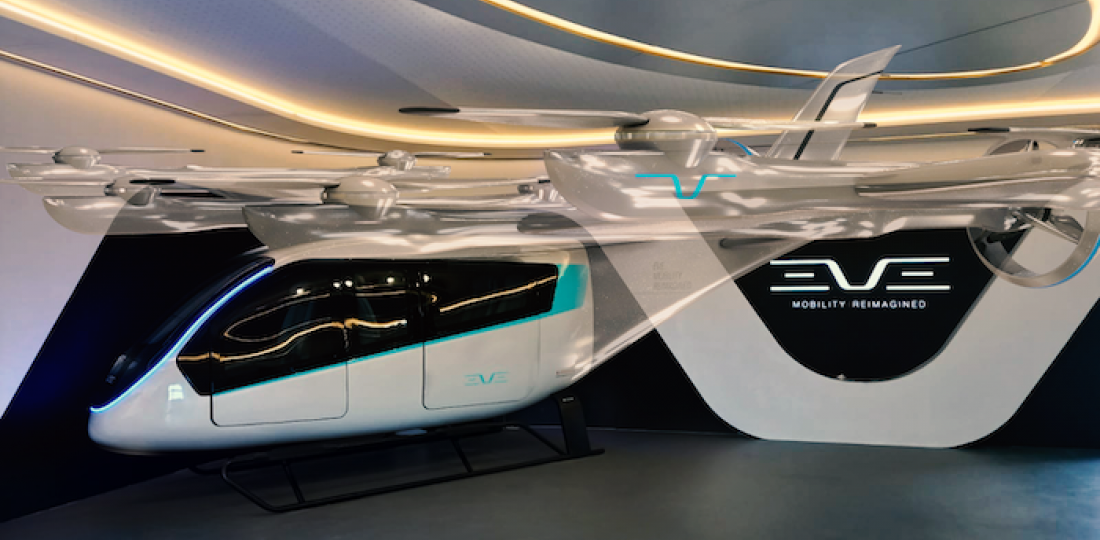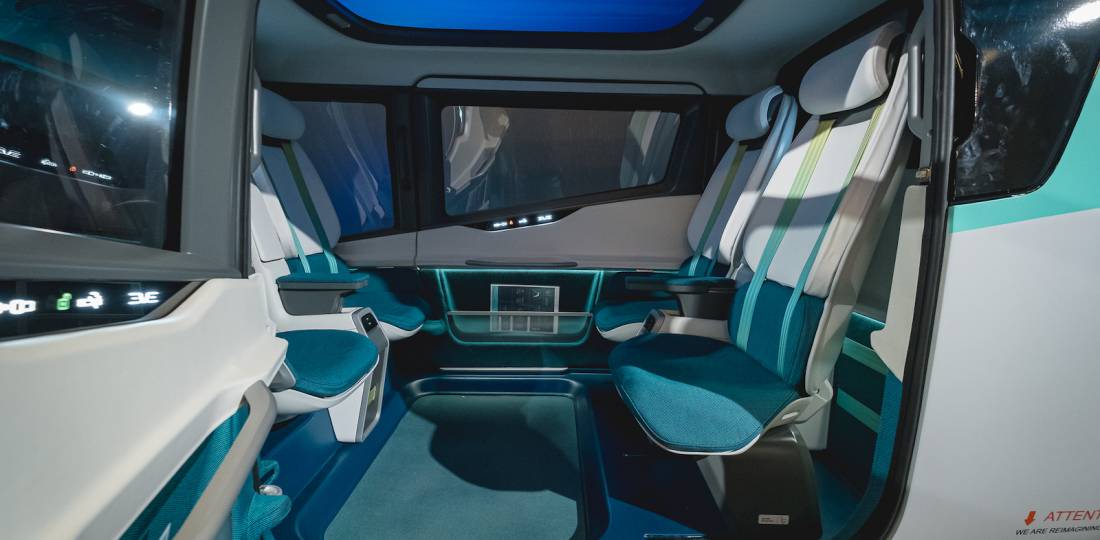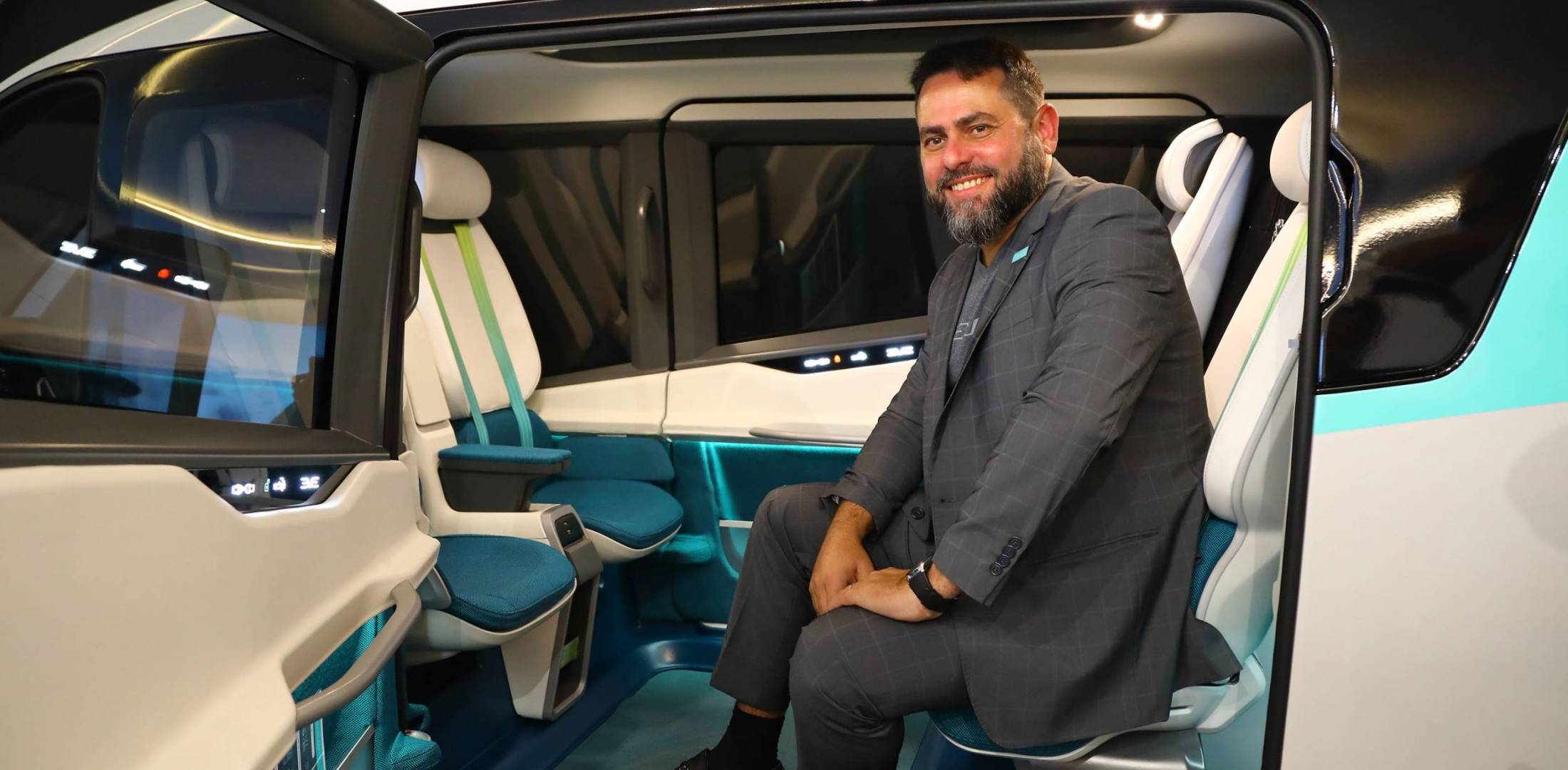Eve revealed a cabin mockup for its planned eVTOL aircraft featuring lightweight seats made from recycled plastic for the passenger cabin and single-pilot flight deck at a Sunday afternoon Farnborough Airshow press conference. Perhaps more significantly, the company also disclosed a redesign that sees a wing and canard configuration replaced by a wing and empennage combination.
The aircraft will feature eight vertical lift rotors and a pair of pusher propellers and would operate flights of up to 60 miles on a full electric charge. With a cruise speed of 125 mph, most of the piloted flights will likely last no more than around 30 minutes, operating out of city center vertiports.

The unveiling of the cabin at the Farnborough show represents the first public glimpse of what it will be like to travel in the new-generation air taxis. Advanced air mobility pioneers like Eve expect commercial services to start in 2025, predicting a rapid scaling up in the number of aircraft in operation, but the company provided little detail before about the nature of the passenger experience.
According to Eve, it now holds provisional sales agreements covering deliveries of 1,910 aircraft. The company says it expects around 100,000 eVTOLs to fly in commercial service worldwide by 2040.
The list of operators, flight booking platforms, and leasing companies that have committed to buy the Eve aircraft now includes Republic Airways, Halo Aviation, Blade, Falko, Fahari Aviation (a subsidiary of Kenya Airways), Bristow, Helisul Aviação, Flapper, Helipass, Widerøe Zero, Falcon Aviation, and Avantto. Eve says it does not intend to operate aircraft itself but it expects to closely participate in helping its customers create efficient air transportation business models.
In May, Eve raised $377 million through an initial public offering that will fund its plans to bring the new eVTOL model to market in 2026. Its parent company, Brazil's Embraer, remains the majority shareholder after merging Eve with special purpose acquisition company Zanite.
With Embraer’s backing, Eve is working on key building blocks of what it calls the ecosystem for advanced air mobility, including air traffic management and aircraft maintenance. Earlier this year it started working with Dutch university TU Delft to investigate the eVTOL “ride quality” and how all passengers, including those using wheelchairs can be accommodated.

In June, Eve held its first advisory board meeting in the Portuguese capital Lisbon, generating feedback and dialog among customers and partners about several aspects of the urban air mobility market. The event—attended by more than 20 participants representing fixed-wing and rotorcraft operators, rideshare platforms, and lessors—covered subjects including operations, service and support, aircraft performance, urban air traffic management, cabin design, and passenger journey.
